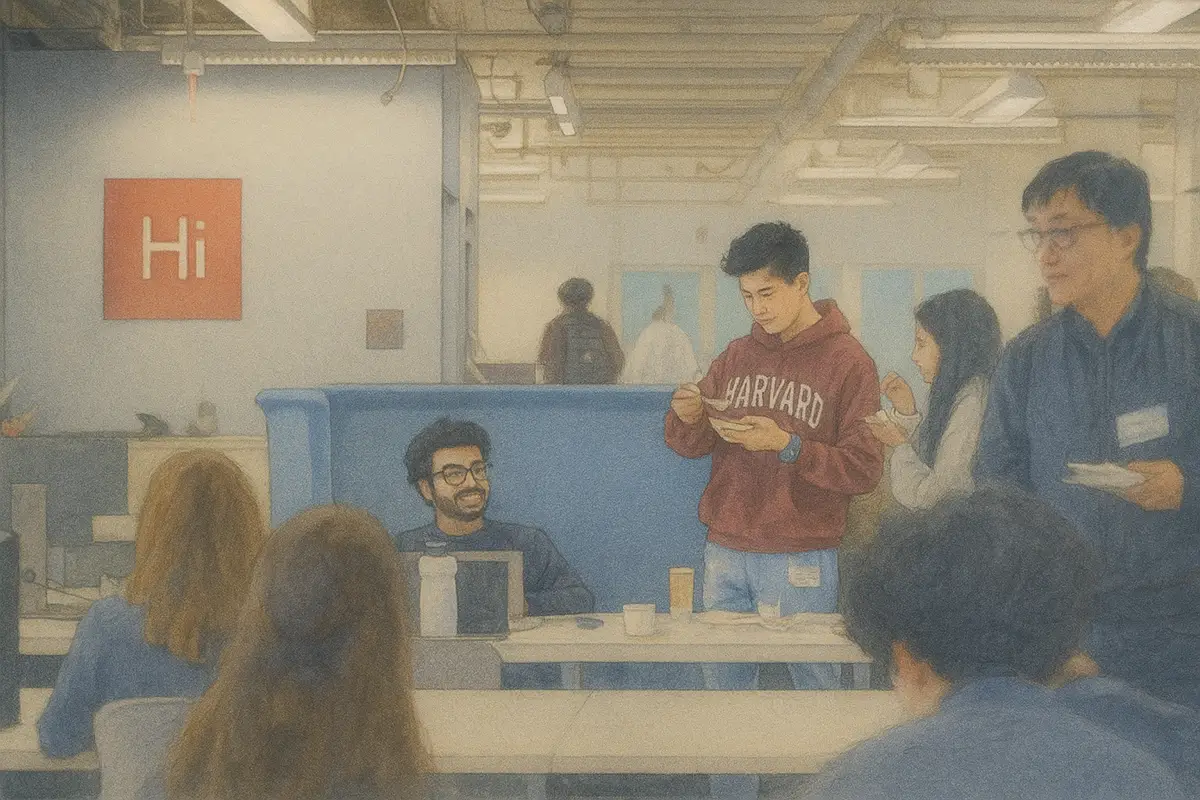.png)
We’re in a critical moment for the future of government. Government spending is at an all-time high, trust in government is at an all-time low, and agencies are struggling with low engagement and retention. Government workers are under-resourced and isolated, their agencies are underperforming, and their leaders are disconnected from frontline perspectives on what solutions can change the narrative.
Government agencies and partner organizations have the information and expertise to make our world a better place, but it’s agonizingly difficult for public servants to find the answers they need so they can put that information and expertise to use.
We started Roundtable to help public servants capitalize on the vast information public servants can theoretically access, but can’t use; to build technology that accelerates how working solutions are shared and adopted across government agencies and partner organizations. Civic Roundtable's recognition as one of Fast Company’s 2025 Most Innovative Companies proves that our team’s work is effective and we can change the status quo for public servants, government institutions, and the communities they serve. We’re grateful to be part of the solution.
At Civic Roundtable, our team shares a core belief: The public sector is a force for good. From responding to emergencies, keeping our elections secure, and improving our health to spurring economic development, supporting people suffering from opioid addiction, and helping people experiencing homelessness recover, our public institutions have a critical role to play in the health and wellbeing of all our lives.
In the modern age, effective and efficient delivery of these services to members of the community is functionally impossible without technology. But the technology and tools that are supposed to help public servants are failing them.
Government agencies have long been hampered by outdated systems, slow adoption of new tools, and a general lag behind the private sector. Govtech projects over $6 million only succeed 13% of the time due to a misalignment between technology and end users in public service, lengthy, onerous procurement processes and drawn-out implementations, often taking years to bring new systems online — if they come online at all (Belfer Center).
At the same time, government workers are inundated every day with content from hundreds of emails, to lengthy policy documents, to hour-long trainings and webinars, to guidelines and other reports. Public servants want to spend less time looking for answers and more time achieving their agency’s mission.
They’re also inundated with collaboration challenges as they try to work cross-functionally with other federal, state, and local government employees, nonprofits, and other partner organizations. This is an existential challenge because government is inherently collaborative: Police departments work with fire departments, homelessness coordinators work with public health departments, and local election officials work with their state and federal counterparts. Most tools fail to account for the cross-organizational nature of public service.
Civic Roundtable’s government operations platform solves these challenges.
Our platform was built for complex, interagency efforts, ending the frustrating norm for public servants: too much time spent doing admin work in order to do their actual jobs. We consolidate listservs, messaging tools, document repositories, websites, learning management systems, CRMs — all the tools and technologies that collect and disseminate information — into a centralized, easy-to-use platform.
Public servants on the front lines know what information matters and our AI tools help them find anything they need — from a PDF to an email attachment to an expert on a given topic. The results are powerful: 80% of active users have rapidly adopted AI-driven features, leading to a 40% improvement in information retrieval and a 25% reduction in time spent on administrative tasks.
Department leaders can leverage real-time data to understand which initiatives are making progress, what resources are making a difference, and what’s not working and why. For example, they can understand how resource efficacy differs between urban and rural communities in their area, ensure everyone has access to and has seen pertinent documents and information, and use real-time data to identify information gaps and provide answers to public servants.
We’re also leading the industry with a new standard for technology procurement and deployment.
Roundtable can be deployed in days or weeks, not years. By quickly implementing solutions, government agencies can respond to urgent needs in real-time, whether it’s managing a national clearinghouse for election officials or coordinating a statewide response to extreme heat. Our rapid deployment capabilities are redefining what is possible in government technology, proving that the public sector can be as agile and responsive as any other industry.
Civic Roundtable’s innovations are not just about improving processes — they are about driving real-world impact. We’ve tackled some of the most pressing challenges facing government agencies today, from ensuring election integrity to addressing homelessness and environmental crises.
Today, thousands of unique government organizations across all 50 states are using Roundtable. Department leaders are making data-driven decisions and improving the responsiveness of their agencies. Frontline employees are empowered with the fundamental technology, information, and answers they need to solve our communities’ most complex problems.
We're grateful to the Roundtable team for making our inclusion in Fast Company’s 2025 Most Innovative Companies list possible. We're grateful to our customers, investors, and supporters, too — we wouldn’t be here without you.
Today, we’re celebrating. Tomorrow, we’re getting back to work.

Subscribe to our blog today for Roundtable news and product announcements, straight to your inbox.